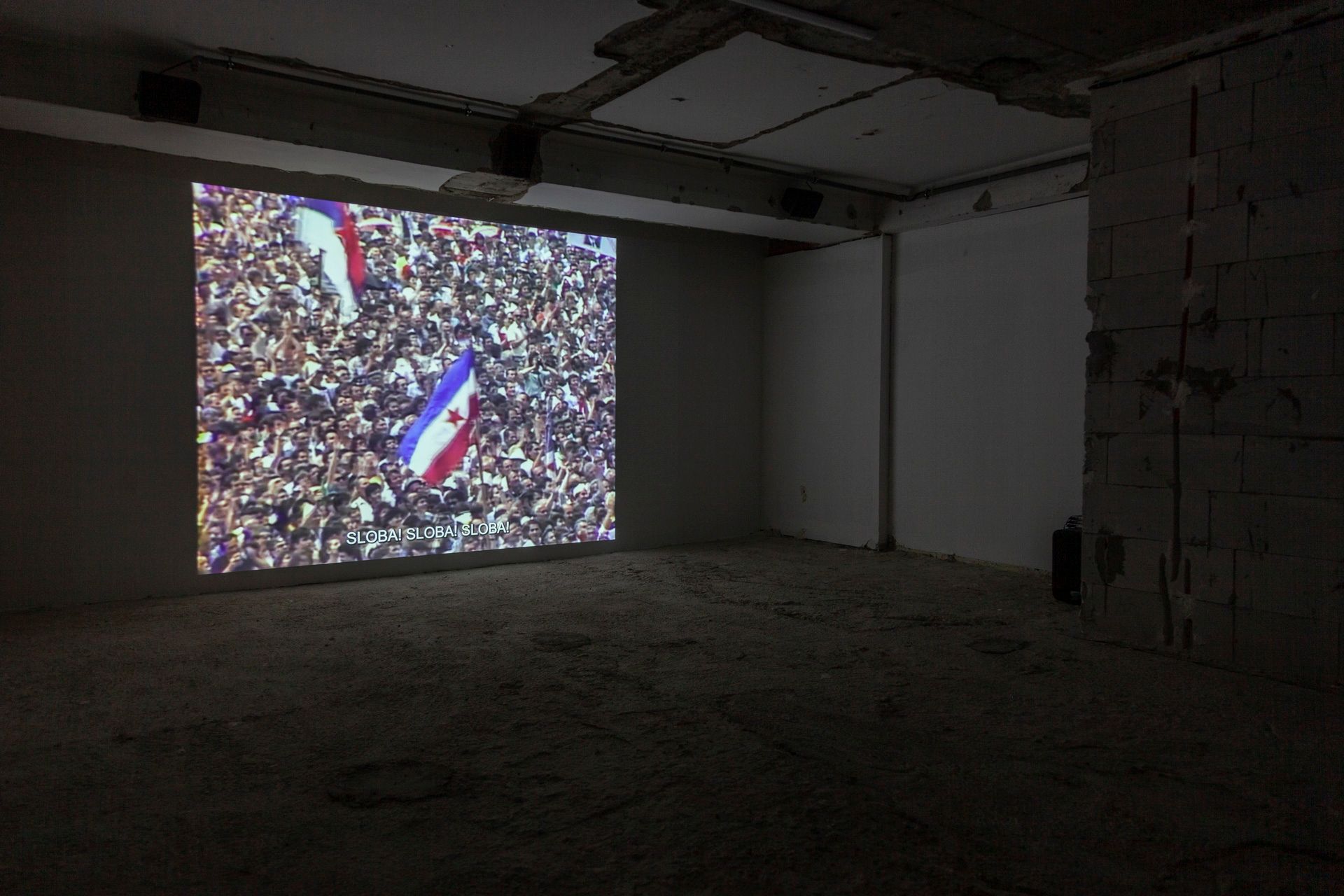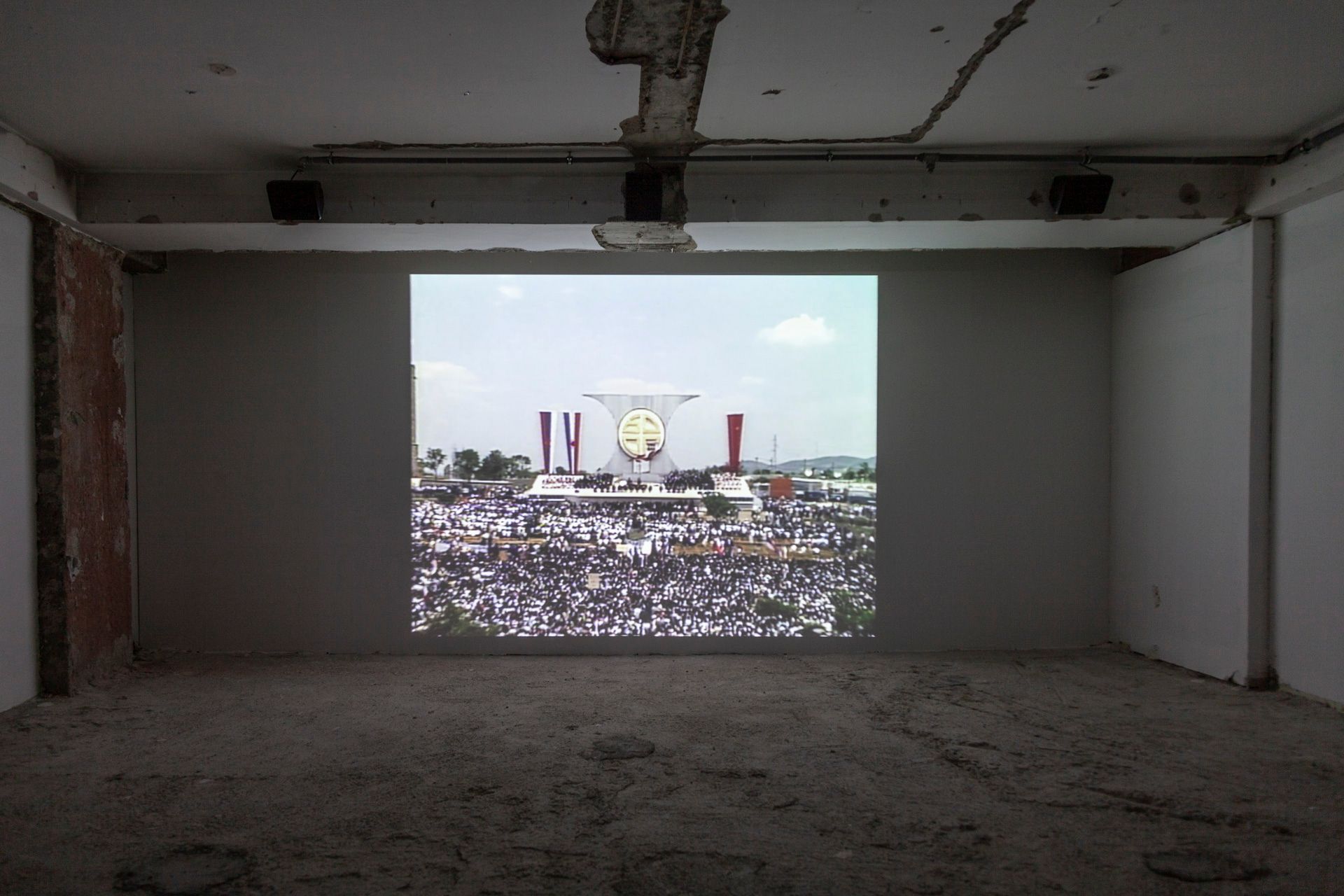Marta Popivoda
Yugoslavia was built upon the ideology of brotherhood and unity. Since it was composed of different republics and ethnicities, the socialist state relied on this interethnic guiding principle – coined during the Yugoslav People’s Liberation War (1941–1945) – to hold it together as one collective body.
Drawing on the ancient philosophical concept of fraternal love, it was an ideology that foresaw the extension of the unconditional love between siblings to society at large – across the boundaries of class, gender, religion and ethnicity. In her research-based film essay, Marta Popivoda examines the ways in which this state-led solidarity was publicly performed, whether in the context of youth work actions, parades, sporting events or other public displays.
Analysing found footage from 1945 to 2000, Popivoda looks for what it was that held the collective body together and what led to its disintegration. Why, she calls upon us to consider, did citizens so readily abandon the maxim of brotherhood and unity in favour of nationalism, individualism and capitalism? Was there, is there not something to be salvaged from socialism?
Marta Popivoda (1982, RS/DE) is a filmmaker, artist and researcher living and working between Belgrade and Berlin. The main concerns in her work are the tensions between memory, history and ideology, as well as the relations between collective and individual bodies. Popivoda approaches them from a feminist and queer perspective.
For many years, Popivoda has been specifically interested in the antifascist and feminist potentialities of the Yugoslav socialist project. In her recent work, she uses landscape dramaturgy, feminist storytelling and radical slowness principles to produce verbal-images or scenes of (antifascist) memory.
She cherishes collective practice in artmaking and research, and for many years she was part of the Teorija koja Hoda / Walking Theory collective. Today, Popivoda often collaborates with theorist and dramaturge Ana Vujanović in the production of films, video installations and performances.
Works
Marta Popivoda
Yugoslavia, How Ideology Moved Our Collective Body
2013
Video, 62.00 min.
Directed by Marta Popivoda
Written by Ana Vujanović, Marta Popivoda
Edited by Nataša Damnjanović
Sound design by Jakov Munižaba
Re-recording mix by Christian Obermaier, Jakov Munižaba
Producers: Marta Popivoda, Alice Chauchat
Executive: producer Dragana Jovović
Co-Producer: Ann Carolin Renninger
Courtesy of the artist
Produced by TkH [Walking Theory], Belgrade - Les Laboratoires d'Aubervilliers, Paris - Universität der Künste Berlin, Berlin - joon film, Berlin
Supported by Program Archive of Television Belgrade - Périphérie - Centre de création cinématographique - Dart film

